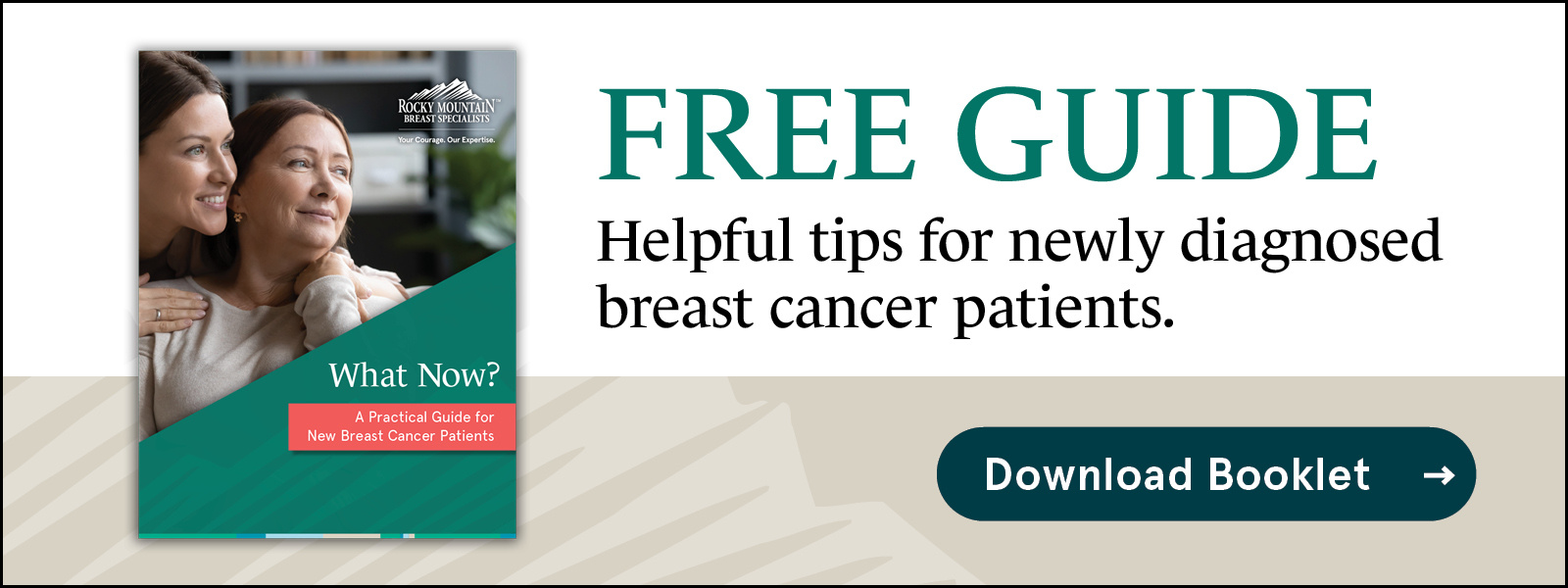Actively Opposed: One Woman’s Stand Against Metastatic Breast Cancer
5 min read

Staying active has always been a way of life for 66-year-old Denver resident Alice Moring.*
“I grew up playing football, baseball, and basketball,” Alice said. “I was kind of a tomboy. I’ve always loved sports. My parents encouraged my brother and me to participate.”
These days, Alice’s favorite activities include hiking, biking, skiing, and jogging. She finds inspiration in the outdoors.
“I think it’s good for the soul,” Alice said. “I love enjoying God’s great Creation.”
For Alice, her lifestyle is more than a source of pleasure. It’s also good medicine as she approaches 30 years of breast cancer survivorship.
A Life-Changing Call
“I thought, maybe there’s something there, but I’m 37 and I have no family history of breast cancer,” Alice said. “I didn’t realize then that most breast cancer cases don’t involve a family history. A friend who’s a registered nurse recommended getting the lump in my left breast checked out.”
Learn more about breast cancer screening.
Alice saw her primary care physician (PCP), who concluded a lump was present but recommended waiting a month before taking further action. A month later, with the lump still in place, the physician performed a biopsy.
“My PCP said the lump didn’t look like cancer to him,” Alice said. “Two days later, on April 2, 1994, he called me. It’s always a bad sign when your doctor is crying when they call you. He told me I had cancer. My world turned upside down.”
Finding a Way Forward After a Breast Cancer Diagnosis
Within days, Alice saw an oncologist and a surgeon to plot a treatment plan. She had estrogen receptor-positive breast cancer, meaning proteins called estrogen receptors were attached to the cancer cells. Estrogen receptors and their sister proteins, progesterone receptors, can spur cancer growth.
Like many women with breast cancer, Alice needed surgery, and she faced an important decision. She could choose to have a lumpectomy – removal of the tumor and nearby breast tissue while preserving the rest of the breast – or a mastectomy, which is the removal of the whole breast. The physicians told her there were additional suspicious areas in the breast, so she opted for a mastectomy.
You might also like to read: Lumpectomy vs Mastectomy: Two Surgical Options for Treating Breast Cancer.
“I didn’t feel sick,” Alice said. “In fact, I went skiing the day before I had the surgery. What else was I supposed to do? Sit around and worry?”
 Alice had surgery on April 9, 1994, exactly one week after learning she had cancer.
Alice had surgery on April 9, 1994, exactly one week after learning she had cancer.
“They performed the mastectomy, took out some lymph nodes, and a couple were positive,” she said. “It was considered stage 2 breast cancer.”
Chemotherapy, Calm, and Renewed Concern
The cancer had invaded nearby lymph nodes. Alice’s medical team watched closely for signs of further spread beyond the breast. A bone scan showed an abnormality on her spine. Thankfully, however, a biopsy revealed the growth to be benign.
About a month after the mastectomy, Alice started a regimen known as AC chemotherapy. She received four treatments, with each one spaced three weeks apart. Filgrastim, a medication that spurs the production of white blood cells, helped her cope with the side effects.
“A day or two after chemotherapy, I felt pretty lousy, but I was able to go for bike rides,” Alice said. “I felt like it was important to stay active. I made it through chemotherapy relatively well.”
Joining a support group helped her overcome fears about how chemotherapy might change her life.
“When I started chemotherapy, I thought I would never be the same again, never ski again,” Alice said. “Later, that seems kind of ridiculous, but when you’re in the heat of treatment, you feel like you’re not going to be normal again.”
Alice finished chemotherapy in July 1994 and resumed her career at a large consulting firm a few months later. She took several anticancer medications for the next seven years, and the disease was stable.
Read more about breast cancer treatments.
Then things changed. A regular check of her tumor markers revealed they’d skyrocketed.
‘From Lily Pad to Lily Pad’
By 2001, Alice had been in the care of Rocky Mountain Cancer Centers (RMCC) for more than five years. It’s a relationship that has continued for over two decades through multiple oncologists. Alice indicated that she’s always felt comfortable trusting her care to RMCC. Her care has shifted over the years to keep up with the changing nature of the challenge she faces.
When Alice’s tumor markers shot up in 2001, she began taking an estrogen-suppressing medication. Several more years of stability followed, but in 2006, cancer appeared in her lungs. The breast cancer was metastatic. Once again, her medical team treated the disease using medications.
Over the next decade, Alice alternated between periods of remission and cancer recurrence. In 2008, with the cancer at stage 4, she underwent several weeks of radiation therapy to her left hip, fitting the treatments in during business trips to California’s Bay Area. Beginning in 2015, she took the targeted therapy palbociclib for a year. Next, she spent three years as part of a clinical trial of the novel targeted therapy, TAK-228.
“I was an exceptional responder to TAK-228, which is someone who really thrives on a medication,” Alice said. “It worked for me from April 2017 to February 2020.”
By that time, another treatment shift was necessary.
“I jumped from lily pad to lily pad with medications,” Alice said. “Eventually, TAK-228 stopped working as well for me.”
Alice began taking the oral chemotherapy medication capecitabine in 2020. She’s been using it to manage the cancer with promising results.
Daily Renewal
A woman of faith, Alice considers herself blessed. Despite the peaks and valleys of the past 28 years, she’s enjoyed a rich life during her ongoing cancer journey. Every day is a fresh start and a new opportunity.
 “I’ve been blessed by God the whole time I’ve had cancer,” she said. “I continued to work full time, except during chemotherapy, and I just carried on with my life. For me, the keys to my success so far are that I pray a lot, and I have super support through my husband, church, friends, and family. I exercise frequently, follow a low-fat diet, have regular checkups, and get my tumor markers checked monthly.”
“I’ve been blessed by God the whole time I’ve had cancer,” she said. “I continued to work full time, except during chemotherapy, and I just carried on with my life. For me, the keys to my success so far are that I pray a lot, and I have super support through my husband, church, friends, and family. I exercise frequently, follow a low-fat diet, have regular checkups, and get my tumor markers checked monthly.”
RMCC has been a steady presence in Alice’s life for all but the first two years of her cancer journey. Currently, she’s under the care of board-certified medical oncologist and hematologist Dr. Sujatha Nallapareddy and certified physician associate John Novak.
“John and Dr. Nallapareddy have been great,” Alice said. “They’re caring, kind, and supportive. Additionally, they are on top of all the latest developments related to breast cancer treatment.”
Alice remains devoted to a healthy, active lifestyle. However, she had to take a hiatus from skiing after breaking her leg on the slopes in 2022. That slowed her down but didn’t stop her from moving forward.
“My attitude is that God is in control, but I’m going to do whatever I can to make myself as healthy as possible,” Alice said. “I truly believe in taking care of my body. I don’t drink alcohol, and I work out a lot. There are a lot of things I can do to stay healthy.”
*The patient’s name has been changed to protect her identity.

